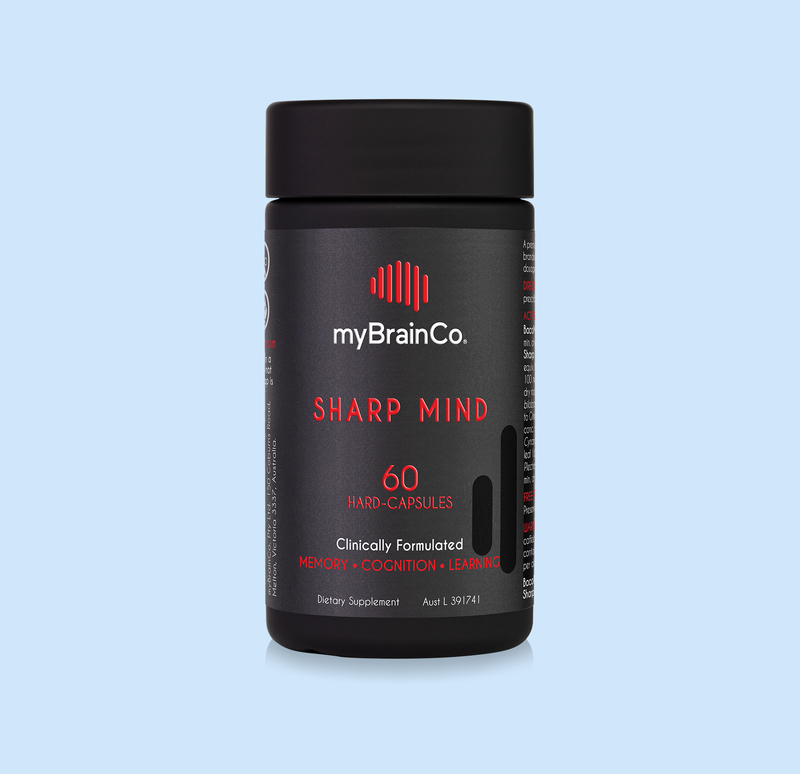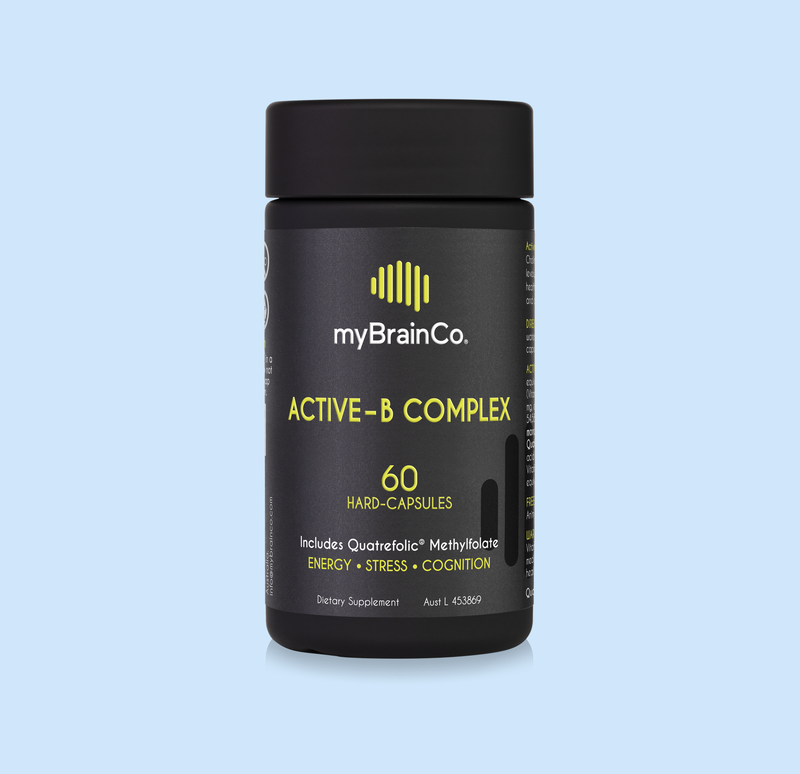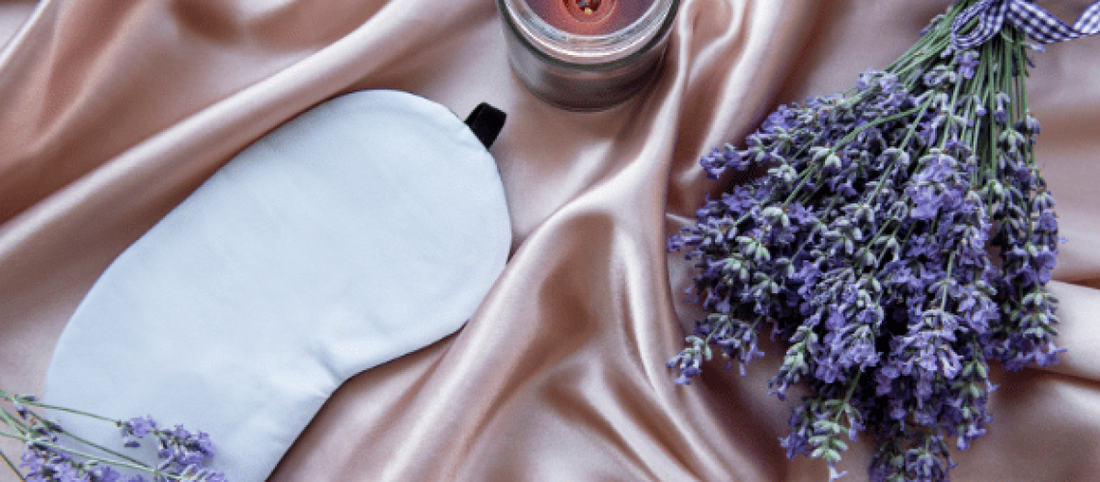Getting a good night’s sleep is critical to brain health and longevity. A lack of sleep can have deleterious effects on our behaviour, mood, cognitive performance, as well the coordination of proper motor functions of the body.[1]
Our brain uses sleep as an important housekeeping mechanism to order and sort the learnings of the day, and thus, lacking sleep can impair our long-term memory. During sleep, the brain can initiate its own methods of detoxification, releasing enzymes that allow the brain to repair cellular damage caused by free radicals. Without sufficient rest, our neurotransmitters and neurons cannot rest and regenerate, and this can further account for the energy, mood and personality changes experienced by those with chronic sleep loss.[1]
Insomnia is a global health concern, with a number of studies indicating it may impact as much as 60% of the adult population. Many sufferers turn to herbal medicine sleep aids because sedative prescription medications can produce undesirable side effects such as headache, cognitive impairment, changes in mood and behaviour, weight gain, sexual dysfunction, drowsiness, falls, as well as dependence and withdrawal.[2,3] Conversely, natural medicine sleep aids have a reputation for their gentle, relaxing actions whilst not being habit forming.
Sleep Well has been formulated with a synergistic blend of herbs and nutrients that can help to improve sleep quality, promote muscle relaxation and help to relieve nervous tension and mild anxiety, which can commonly disrupt sleep. Sleep Well is a blend of relaxing magnesium supported by calming herbal medicines, Kava, Ziziphus and California Poppy.
Kava vs. Lavender for sleep
Sleep Well was recently reformulated, replacing Lavender with the popular Pacific Island herbal medicine, Kava. This change was made following a number of reports from within the myBrainCo. community that Lavender was aggravating to some consumers, resulting in aromatic lavender ‘burps’ and transient nausea. The clinical and product development team began investigating a replacement that was equally efficacious but could be better tolerated by those with sensitive digestion. Kava rapidly became the frontrunner.
Both Kava and Lavender exert their effect through their calming, anxiolytic qualities. They help to calm and soothe the nervous system, assisting with those common barriers to sleep. Studies that explore the anti-anxiety qualities of herbs and drugs often use the Hamilton Rating Scale for Anxiety (HAM-A) assessment to quantify findings. In separate studies, over a 6-week period, both Lavender and Kava extracts showed they were capable of statistically significant point reductions in HAM-A with 11.3 points and 13 points reduction, respectively.[4,5]
Kava has also shown to be effective in an insomnia-specific pilot trial over a 6-week period. It was concluded Kava was effective for both stress and insomnia.[6] Combining the HAM-A comparison, together with Kava’s long history of traditional evidence, we were confident Kava was the ideal choice to replace Lavender in Sleep Well to deliver effective relaxation without any digestive disturbance.
Herb and Nutrient Relaxants in Synergy
Magnesium is undoubtedly the poster mineral for relaxation. In older adults, magnesium has been shown to improve sleep time and sleep onset latency, early morning awakening, and objective measures for insomnia such as the concentration of serum renin, melatonin and serum cortisol.[7] Magnesium deficiency risk tends to increase as we age, and furthermore, the body’s demand for magnesium will increase significantly when we’re under physical or emotional stress.[8,9] Given that both magnesium deficiency and insomnia tend to be more prevalent with age, it’s worthwhile seeking to boost magnesium status in any adult experiencing difficulty with sleep.
California Poppy is well known in traditional medicine as a sedative, analgesic and antispasmodic and has been used widely for anxiety, insomnia and various kinds of pain, including tooth pain and headache. California Poppy has been shown in a multicenter, double-blind, randomised, placebo-controlled study to combine well with magnesium to relieve feelings of stress and anxiety, indicating they work well as a synergistic combination.[10]
Ziziphus is a traditional Chinese medicine revered for its sedative, hypnotic, antidepressant, anxiolytic and neuroprotective effects.[11] Despite being used this way for thousands of years, modern science has continued to validate its effects. It is often employed clinically in combination with other herbs as a tranquilising agent to calm the mind, relieve tension as well as help with insomnia and forgetfulness.[12] It is believed to exert this action through GABA and its inhibitory effect on the central nervous system.[13] However, a fascinating animal study has shed light on another potential mechanism of action, indicating that Ziziphus may have a corrective effect on the negative microbiota changes that can be associated with insomnia as well as improving short-chain fatty acids and modulating inflammation.[11] This gut-derived action is a fascinating insight which serves to highlight the multiple beneficial mechanisms of action we are able to obtain when using herbal medicines with a range of constituents.
Addressing Sleep Loss on Multiple Fronts
The beauty of using herbal medicines is they can often exert multiple mechanisms of action. Throughout all forms of traditional herbal medicine, herbs have been combined to create synergy and an additive effect on actions. By combining Kava, Zizyphus and California Poppy together with magnesium, we have the foundations to address some of the most common barriers to sleep loss; Magnesium deficiency, stress, anxiety, worrying thoughts, a racing mind and musculoskeletal pain and inflammation. Gentle, restorative sleep aids should assist the body to relax, become restful and drift easily off to a pleasant and refreshing sleep and allow you to wake to feel well-rested and alert for the day. Getting into a quality sleep routine has a positive impact on both physical and mental wellbeing and has even been associated with improving telomere length – a cellular marker of aging.[14]
.
.
.
.
📖 REFERENCES
- Eugene AR, et al. The Neuroprotective Aspects of Sleep. MEDtube Sci. 2015 Mar;3(1):35-40.
- Bhaskar S, et al. Prevalence of chronic insomnia in adult patients and its correlation with medical comorbidities. J Family Med Prim Care. 2016 Oct-Dec;5(4):780-784.
- Shergis JL, et al. Medicinal seeds Ziziphus spinosa for insomnia: A randomized, placebo-controlled, cross-over, feasibility clinical trial. Complement Ther Med 2021 Mar; 57:102657.
- Woelk H, Schläfke S. A multi-center, double-blind, randomised study of the Lavender oil preparation Silexan in comparison to Lorazepam for generalized anxiety disorder. Phytomedicine. 2010 Feb;17(2):94-9.
- Volz, HP, et al. Kava-kava Extract WS 1490 versus Placebo in Anxiety Disorders – A Randomized Placebo-controlled 25-week Outpatient Trial. Pharmacopsychiatry 1997 30(01):1–5.
- Wheatley D. Kava and valerian in the treatment of stress-induced insomnia. Phytother Res. 2001 Sep;15(6):549-51.
- Djokic G, et al. The Effects of Magnesium – Melatonin – Vit B Complex Supplementation in Treatment of Insomnia. Open Access Maced J Med Sci. 2019 Aug 30;7(18):3101-3105.
- Abbasi B, et al. The effect of magnesium supplementation on primary insomnia in elderly: A double-blind placebo-controlled clinical trial. J Res Med Sci. 2012 Dec;17(12):1161-9.
- Schwalfenberg GK, et al. The Importance of Magnesium in Clinical Healthcare. Scientifica (Cairo). 2017;2017:4179326.
- Al-Snafi AE. Eschscholzia californica: A phytochemical and pharmacological – review. IAJPS 2017; 4(2):257-263
- Hua Y, et al. Ziziphus jujuba Mill. var. spinosa (Bunge) Hu ex H. F. Chou Seed Ameliorates Insomnia in Rats by Regulating Metabolomics and Intestinal Flora Composition. Front Pharmacol. 2021 Jun 16;12:653767.
- Chen J, et al. A Review of Dietary Ziziphus jujuba Fruit (Jujube): Developing Health Food Supplements for Brain Protection. Evid Based Complement Alternat Med. 2017;2017:3019568.
- Shergis JL, et al. Medicinal seeds Ziziphus spinosa for insomnia: A randomized, placebo-controlled, cross-over, feasibility clinical trial. Complement Ther Med 2021 Mar;57:102657.
- Lee KA, et al. Telomere length is associated with sleep duration but not sleep quality in adults with human immunodeficiency virus. Sleep. 2014 Jan 1;37(1):157-66.



